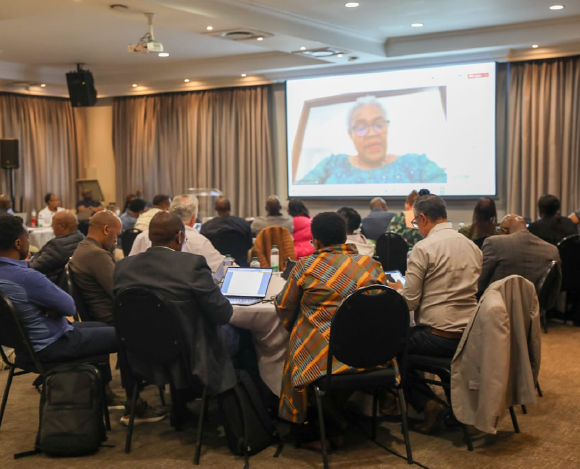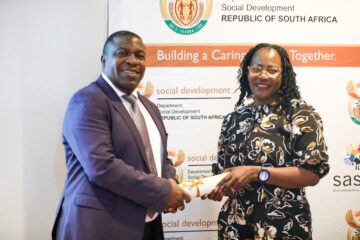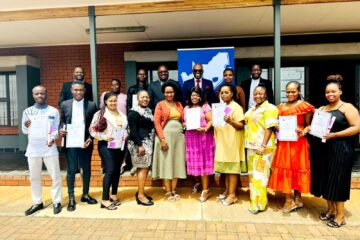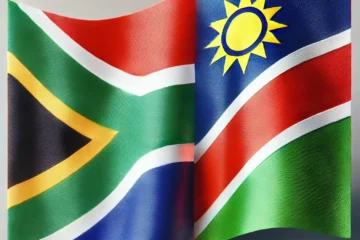SOCIAL DEVELOPMENT SECTOR SETS STRATEGIC VISION FOR NEXT FIVE YEARS

By Precious Mupenzi
- The Minister of Social Development, Ms. Sisisi Tolashe, recently led the Social Development Lekgotla in Johannesburg, bringing together officials from all nine provinces to strategise for the next five years under the newly established Government of National Unity (GNU) after the recent general elections.
- Emphasising the importance of collaboration across political parties, Tolashe highlighted a developmental agenda aimed at poverty alleviation and sustainable livelihoods, noting that social grants currently support around 45% of South Africans.
- The Lekgotla centred on six key areas, including poverty alleviation and support for vulnerable groups, as delegates discussed the urgent need for effective strategies to tackle rising social issues such as unemployment, inequality, and gender-based violence.
The Minister of Social Development, Ms. Sisisi Tolashe, recently convened the Social Development Lekgotla in Johannesburg, where officials from all nine provinces gathered to strategise for the next five years under the newly formed Government of National Unity (GNU) following the general elections on 29 May 2024.
Minister Tolashe emphasised the significance of collaboration among political parties to enhance the quality of life for all South Africans. “The establishment of the GNU is an outcome of the will of the people through their vote. Our people expect us to work together towards creating a better life for all,” she stated.
Reflecting on the progress made over the past 30 years of democratic governance, Tolashe highlighted the need for a developmental agenda that creates a conducive environment for poverty alleviation programmes and promotes sustainable livelihoods. “Currently, social grants support about 45% of the South African population,” she noted, pointing to the success of programmes like the Child Support Grant and the Old Age Grant, which have lifted millions out of poverty.
The Lekgotla focused on six thematic areas: poverty alleviation, addressing social ills, support for youth, older people, and persons with disabilities, capacity building within the social sector, and strengthening social sector coordination. Tolashe acknowledged the increasing demand for social services amid rising challenges such as unemployment, inequality, crime, and gender-based violence. “We need to collaborate with external stakeholders, including the business sector, to address these challenges,” she asserted.
Delegates from various sectors shared their perspectives on the importance of collaboration. Makha Thusi, National Executive Director of FAMSA, expressed gratitude for the opportunity to engage with diverse entities in social welfare. “We are hopeful that these inputs will help remodel DSD’s strategies and policies aimed at improving lives and promoting national development,” he said.
Molefe Takalo, Secretary-General and CEO of the South African Red Cross Society, praised the department for inviting stakeholders to share their experiences. “It’s crucial that our contributions are reflected in the plans developed by the department, informing our collaborative interventions in society,” he emphasised.
Kenny Maluleke, Chief Director responsible for Strategy, Management, and Transformation within the Department of Social Development, outlined the next steps. “The outcome report will be shared with all provinces and social partners. From that, we will craft sector priorities and develop a five-year strategic plan, ensuring robust discussions are incorporated,” he stated.
Wandile Ncaphayi, Chief Director of Restorative Services in the Eastern Department of Social Development, discussed the pressing social issues facing the sector. “We are confronted by increasing challenges, particularly in areas like child malnutrition, teenage pregnancies, and gender-based violence. By planning together and seeking strength from each other, we can make significant progress,” he said.
Minister Tolashe acknowledged the constraints posed by budget cuts, which have historically underfunded the social development sector. “These cuts have significant consequences for the employment of social service professionals, who are at the centre of service delivery,” she explained. Despite these challenges, she reaffirmed the commitment to build on previous gains to achieve a caring and self-reliant society.
Highlighting the importance of effective communication, Tolashe stressed the need for improved engagement between the government and citizens. “Communication is essential to all our work,” she stated, calling for a coordinated approach to better involve citizens.
Minister Tolashe reaffirmed the government’s determination to prioritise social protection and inclusive economic growth. “We recognise that participation in economic activity is the most effective way to lift people out of poverty and improve their lives sustainably,” she said.














